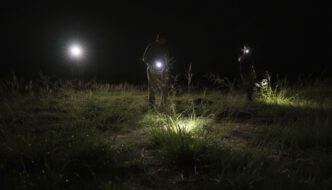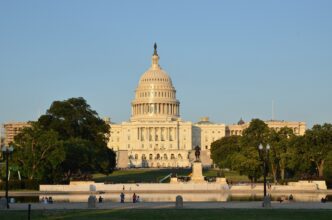In a significant legal development, a state judge has nullified Wyoming’s comprehensive ban on abortion as well as the nation’s first explicit prohibition on medication-induced abortion. This ruling aligns with the increasing support for abortion rights seen across various states.
Since 2022, Teton County District Judge Melissa Owens has consistently blocked these restrictive laws during ongoing legal disputes. Her latest decision is celebrated as a victory by abortion rights advocates, especially following recent voter-backed measures in seven states further supporting access to abortion.
One of the contested Wyoming laws was found to infringe upon women’s rights as guaranteed by the state constitution, allowing abortion only to protect a pregnant woman’s life or in cases of rape and incest. Another law made Wyoming unique in explicitly banning abortion pills, a stance not commonly shared but similarly approached by other states through broader abortion bans.
The legal challenge to these laws was brought forth by four women, including two obstetricians, along with two nonprofit organizations. Amongst these groups, Wellspring Health Access, notable as Wyoming’s first full-service abortion clinic established in years, played a key role in the legal challenge. Their clinic had previously faced an arson attack in 2022, yet persevered to operate and provide essential services.
Julie Burkhart, President of Wellspring Health Access, stated, “This is a wonderful day for the citizens of Wyoming — and women everywhere who should have control over their own bodies.” Such sentiments reflect the broader national trend of states re-evaluating their stances on abortion rights after the 2022 overturning of Roe v. Wade by the U.S. Supreme Court. This landmark decision ended the national right to abortion, enabling many Republican-controlled states to impose bans.
Currently, abortion bans are enforced across 13 states at all stages of pregnancy, with additional restrictions in four states beginning approximately six weeks into pregnancy. Many of these bans face legal challenges, with courts having temporarily halted some, including bans in Utah and Wyoming, and permanently struck down laws in places like Georgia and North Dakota.
In Wyoming, the challengers argued the abortion bans jeopardized their health, well-being and professional obligations, an assertion that Judge Owens recognized as valid. The bans, according to Judge Owens, compromised the ability of medical professionals to offer evidence-based care, violating a 2012 state constitutional amendment that upholds the right of Wyoming residents to make personal health care decisions.
This amendment was originally passed amid fears of government overreach linked to the federal Affordable Care Act, highlighting ongoing tensions over health care autonomy. State attorneys contended that abortion did not fall under the health care purview of the amendment. Notably, Republican Governor Mark Gordon, who sanctioned the abortion laws in 2022 and 2023, has yet to comment on this recent judicial decision.
This ruling by Judge Owens signifies a pivotal moment in the ongoing national conversation about abortion rights. As states continue to grapple with these complex issues, the outcome in Wyoming underscores the importance of judicial oversight in protecting constitutional rights and personal health care decisions.
Source: News4jax








